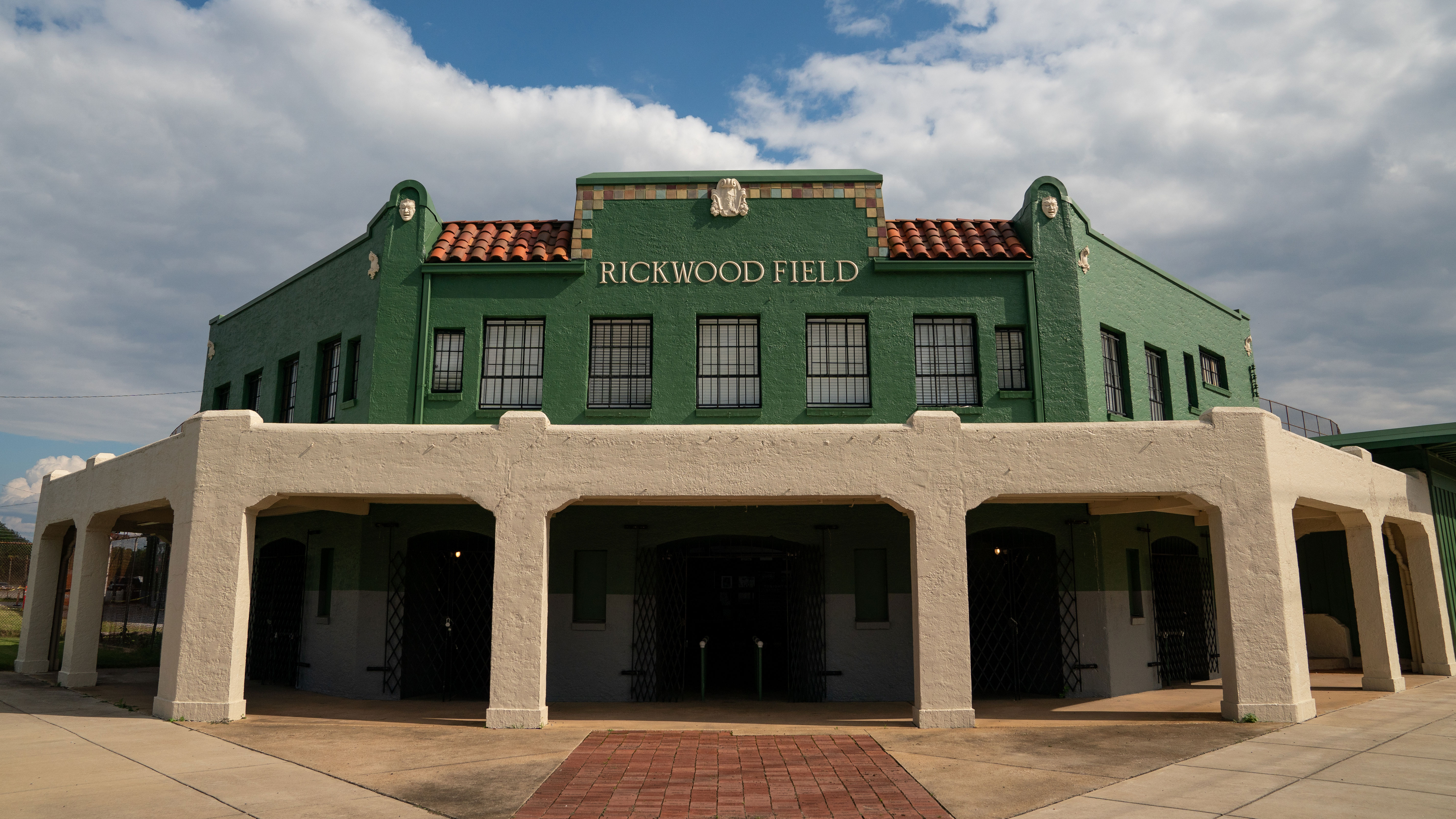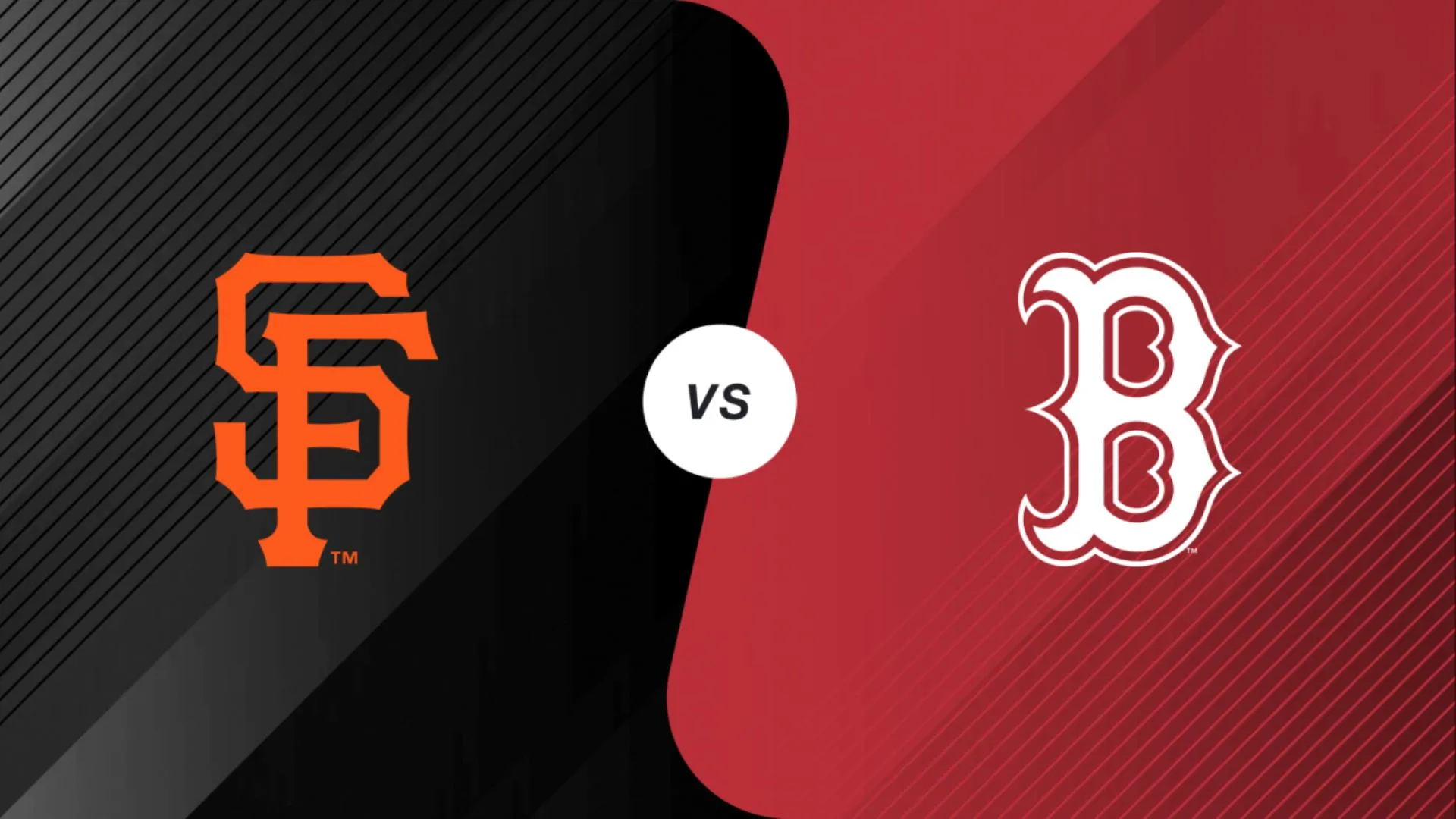HARRISBURG, Pa. -- For even the most talented hitters, baseball is a game filled with failure, but Giants outfield prospect Wade Meckler has gotten pretty used to leaping over any hurdles that show up in his path.
Meckler took the SAT a half-dozen times in high school to get into an Ivy League program, and when that didn't work out even after he hit the required 1450 score, he went to Oregon State, where he got just 15 plate appearances as a freshman and then was cut on two different occasions. When he worked his way back into the mix, Meckler twice tore his hamstring, with the latter one being so significant that surgery was discussed.
There were multiple points when Meckler faced extremely long odds just to get drafted, but now that he's arrived in professional baseball, there's not an ounce of "happy to be here" in his game. He plays a sport where a 1-for-3 night is generally considered a good one, but that's not the approach the 23-year-old takes into any game.
Stay in the game with the latest updates on your beloved Bay Area and California sports teams! Sign up here for our All Access Daily newsletter.
"I just kinda go up there every night and try to get three hits," Meckler told NBC Sports Bay Area last week. "If I get it, it's a successful night. If I don't, then there's something I need to work on."
It's a very high standard, but as he has put himself on the map and surged towards the big leagues, Meckler has hit it at an astonishing rate.
When he has gotten at least three plate appearances in a game this season, Meckler has more three-hit games (11) than zero-hit ones (nine). He played 20 games for High-A Eugene earlier this year and had four four-hit nights, and when that .456 batting average earned him a promotion to Double-A Richmond, he went 3-for-5 in his debut. Meckler has a five-hit game and a four-hit game in Double-A, where he's batting .345 through 30 appearances.
What's so exciting to the Giants is that none of this is new. They took Meckler in the eighth round of the 2022 MLB Draft after he hit .347 in his final season at Oregon State, and he hit .439 when they sent him to San Jose late last summer. In 73 games as a professional, Meckler is batting .383 with a 1.006 OPS. The high standard has quickly become the norm.
San Francisco Giants
"I've never seen somebody go up there and do what he does, and he does it every single game," said left-hander Carson Whisenhunt, who was part of the same draft class and has been Meckler's teammate at three minor league levels. "A bad game for him now is getting two hits, and that's terrible to say, because that's a good game. But a bad game for him is going, like, 2-for-4, which is unheard of. It's pretty cool to see firsthand."
Whisenhunt was the second of six consecutive pitchers the Giants took to begin last year's draft, which came a year after they took pitchers with their first nine picks of the draft. There was a clear goal of adding pitching depth, and Farhan Zaidi now considers that the strength of the system.
But the Giants also seem to have struck gold with some of their later position-player picks. Vaun Brown was the first one they took in 2021, and he's now in Double-A and one of their top outfield prospects. He's also now Meckler's roommate on the road, which doesn't surprise anyone. Both outfielders are grinders who took winding paths to Double-A.
"We share a lot of the same experiences and stuff that we had to deal with just to get here," Brown said. "We kind of have the same mindset in playing the game, and that's really cool to share."
Brown spent years bulking up, and he now has a frame that's reminiscent of Hunter Pence's, with quads so big that minor league affiliates have at times had trouble finding pants that would comfortably fit him on the field. He was 5-foot-7 and 125 pounds as a high school freshman, but even he would have towered over his future roommate.
Meckler was 4-foot-10 and 75 pounds during his first year at Esperanza High School in Anaheim, which made him not just the smallest boy in his class, but the smallest student, period.
"I only remember that because we have an email from when I entered high school and it was for kids to join the football team," Meckler said, laughing. "They said, 'We've had kids who are only 100 pounds on varsity as a freshman.' My mom said to me, 'Well there ain't nobody who is 75 pounds on varsity, so you're not playing football."
That was fine, because baseball was Meckler's passion anyway, and that drive has gotten him through some difficult times, particularly in Corvallis.
The November before his sophomore season at Oregon State, Meckler was called into the coach's office and told he was being cut. A new staff encouraged him to chase his dreams elsewhere, but Meckler returned later in the week and said he would work his way back onto the 35-man roster. He did, but in February he was called in again.
The Beavers were flying to Arizona the next day to start their season, but they had cut a scholarship player, which meant the roster had to be trimmed to 34.
"I was the 35th guy," Meckler said.
Meckler looked at the two decisions as very different circumstances. The first time, "I basically told them, 'No," he recalls. The second time was bad luck, and Meckler knew he could work his way back from that. He also knew his best days in the batter's box were ahead of him.
"I knew I hadn't touched my ceiling yet. I knew I wasn't close to my ceiling," he said. "I wasn't hitting well, but I wasn't striking out. I've always had the bat-to-ball (skills) and I knew that if I cleaned up my swing and continued to get better, I would play. I felt I got a lot better from my freshman to sophomore year, so all I had to do was clean up my swing."
"Part of (staying) was the confidence that I wasn't close to my ceiling, and part of it was that I just didn't want to go anywhere else. I had all my friends at Oregon State, I had a group of really good guys I liked working out with. Even though I got cut, I still liked the coaches and the school. I had dreamed of playing at Goss Stadium. Obviously your first instinct when it happens is, 'I'm going to go to Oregon and I'm going to beat these guys.' But then I thought about it a little bit, and I was like, 'I don't really want to go to Oregon.'"
The second cut proved to be relatively inconsequential anyway. A month after he was told he was off the roster, the pandemic struck and the season was shut down. That provided an opportunity for an undersized outfielder who was eager to work his way into the lineup.
Players weren't allowed to use team facilities, so they improvised. Meckler formed a small workout group in 2020 with teammates Alex McGarry and Andy Armstrong, and they hopped a fence to the field one day and borrowed a net from the cage. They drove it to a backyard and made a makeshift batting cage, and then built an area for workouts.
The trio would wake up at 7 a.m. every day to do a weight lifting circuit before breakfast, and then they would spend an hour running sprints up a nearby hill. Then it was time to hit for a couple of hours, and after lunch, they would get a second lift in. At around 5 p.m., they would collapse back home and hang out until it was time to do it all over again.
"We made a weight room out of wood, with a janky wooden squat rack," Meckler said. "It was all this janky, really gritty stuff, and honestly it was some of the most fun I've ever had. I got so much better."
Meckler posted a .396 on-base percentage when the Beavers returned to the field and finally became a regular. He boosted it to .456 the year after that, and the Giants noticed. Meckler had only talked to their area scout once for about 15 minutes, while other teams had put him through Zoom interviews and had him fill out surveys. He was shocked when it was the Giants who took him on draft night, but it's not hard to see why they became so enamored.
Above all, the Giants value having a feel for the strike zone and making good swing decisions, and Meckler had 53 walks to 49 strikeouts in his final season at Oregon State. He has 44 strikeouts to 43 walks in the minor leagues, and when he talks about his approach to hitting, he might as well be reading from the outline that Gabe Kapler recites a couple of times a month: Be passive on pitches you can't drive, do damage on pitches you can.
"It's about making sure I'm swinging at strikes, making sure I'm doing damage and punishing fastballs in the middle of the plate," Meckler said. "If I do those two things, if I'm not missing fastballs and I'm not chasing, eventually you're going to force someone into the middle of the plate, right? A lot of times guys' off-speed pitches are chase pitches. If I can lay off those, I'm probably going to get a fastball. That's all I really care about.
"If I hit a home run, great. If I get a single, great. I try to dumb it down and simplify it as much as I can. Force the pitcher into the middle of the plate and do not miss fastballs."
When Meckler arrived in Richmond, the staff found that the approach isn't just limited to games. Manager Dennis Pelfrey said that one of the things that stands out most about his outfielder is the attention to detail during batting practice. When Meckler takes a pitch during BP, he'll pause the session and ask Pelfrey where it was located.
"He'll stick his bat out and say, 'Was it here?' He wants me to tell him exactly where it was, and you don't see that in a lot of players," Pelfrey said. "Some of the things that he does are elite, and it's going to help him go a long way."
RELATED: Five Giants prospects who could join youth movement in 2023
Meckler has moved quickly, but he knows there's plenty of work left to do. He has just five homers in 73 professional games, and it's still not a frame that projects to hit for much power in the big leagues. He is walking a narrower path to big league success, but he doesn't have to look hard for an example of how his skills might translate. Cleveland Guardians outfielder Steven Kwan is also a smaller, left-handed-hitting outfielder, but he finished third in the AL Rookie of the Year race last year after batting .298 with 25 doubles, seven triples and six homers. Like Meckler, Kwan went to Oregon State.
If you know your way around the strike zone and consistently make enough solid contact, they'll make room for you at the big league level, especially if you're in the Giants organization. Meckler learned that lesson on his first day in orange and black, when he listened to a team employee describe a hitting strategy that lined up exactly with what he had been doing in college.
"I was like, 'Sweet, that's how I've been thinking about hitting for the last three years,'" Meckler said. "It's been a great fit."


